Far Away Eyes’ Deeper Look Supernatural 12.01 “Keep Calm and Carry On”
The title “Keep Calm and Carry On” perfectly sums up the season 12 Supernatural premiere. The phrase, a British saying that originated in World War II, points to so much of what happens. The obvious example can be found in the introduction of our newest villains—the British Men of Letters in Lady Toni—but that is only the surface.
First, let’s look at Crowley’s search for Lucifer—for the King of Hell, too, must find his own bearings in the aftermath of the Darkness.
Crowley wants to reclaim the throne of Hell—and yet to do so he must eliminate the biggest threat to his secure kingship: the Devil himself. As he tracks Lucifer, he realizes that the Devil, too, struggles to find his own footing—or in this case a vessel strong enough to hold him for more than a few moments. Lucifer can’t make his own plans or find his own moorings if he can’t truly tether himself to earth. Being an archangel—and one extremely powerful no less—means that only a handful can even hope to contain him. And so, Crowley follows his underlings as they clean up the “gross” messes left behind. It’s his only lead.
And yet, for now, that search ends in a dead-end with the latest vessel discarded, the husk left behind to rot. For Crowley, he’ll have to “keep calm and carry on” for just a little while longer it seems. After all, as long as the Devil is out there, Hell won’t follow him.
The phrase truly takes flight, however, when we examine Mary and Dean Winchester’s story.
Throughout the series, Mary has been the specter. She has been the catalyst for the Winchester’s story. It is her loss—brutally at Azazel’s hands—that introduces the family business of “saving people, hunting things.” Her history speaks of a young woman trying to escape the hunter world and find the so-called “apple pie” life. It wasn’t meant to be. No matter what she did or the choices she made, the supernatural world would come crashing back in.
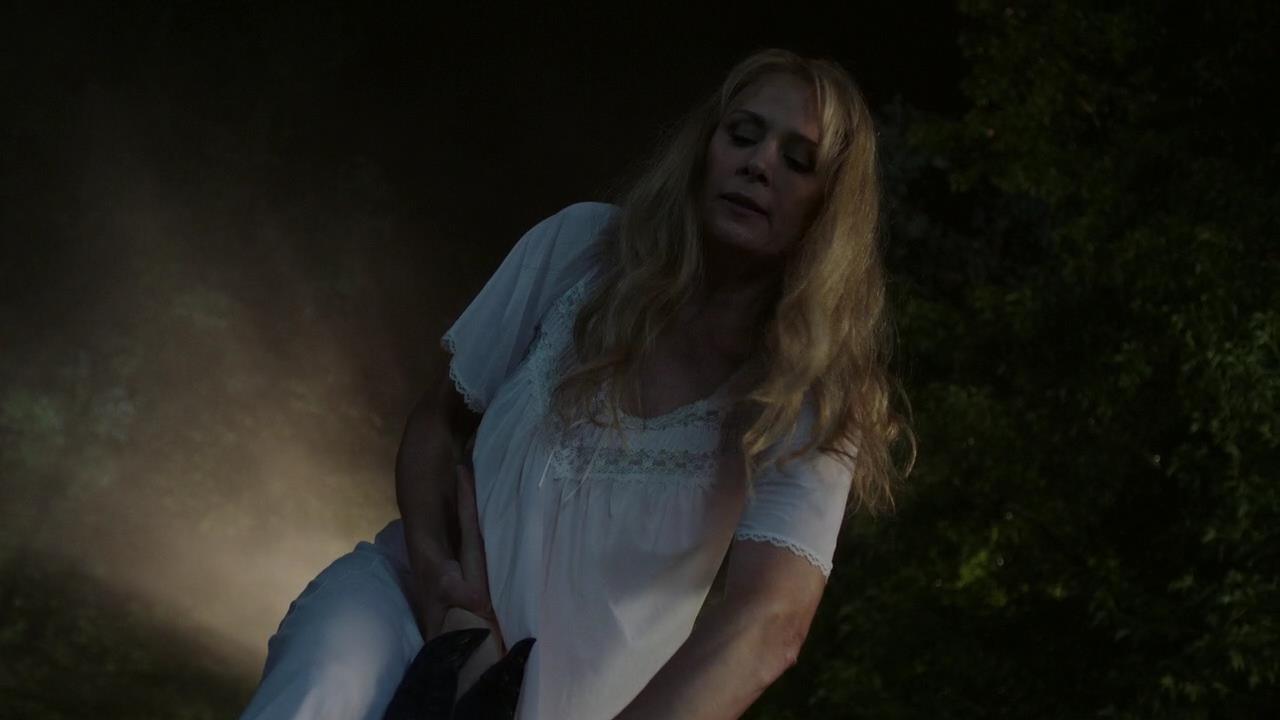
Now, after Amara has chosen to reward Dean, she has been thrust back into the hunter world and a future she does not recognize. Confronted with her adult son, Mary warily watches him approach. She may have spent her life trying to get out of hunting, but her instincts are certainly ingrained. Without hesitation, Mary easily takes Dean down, putting her foot on his throat and demanding answers. While Dean most certainly had no intention of hurting his mother, she doesn’t know that and did precisely what her training demanded: protect herself.
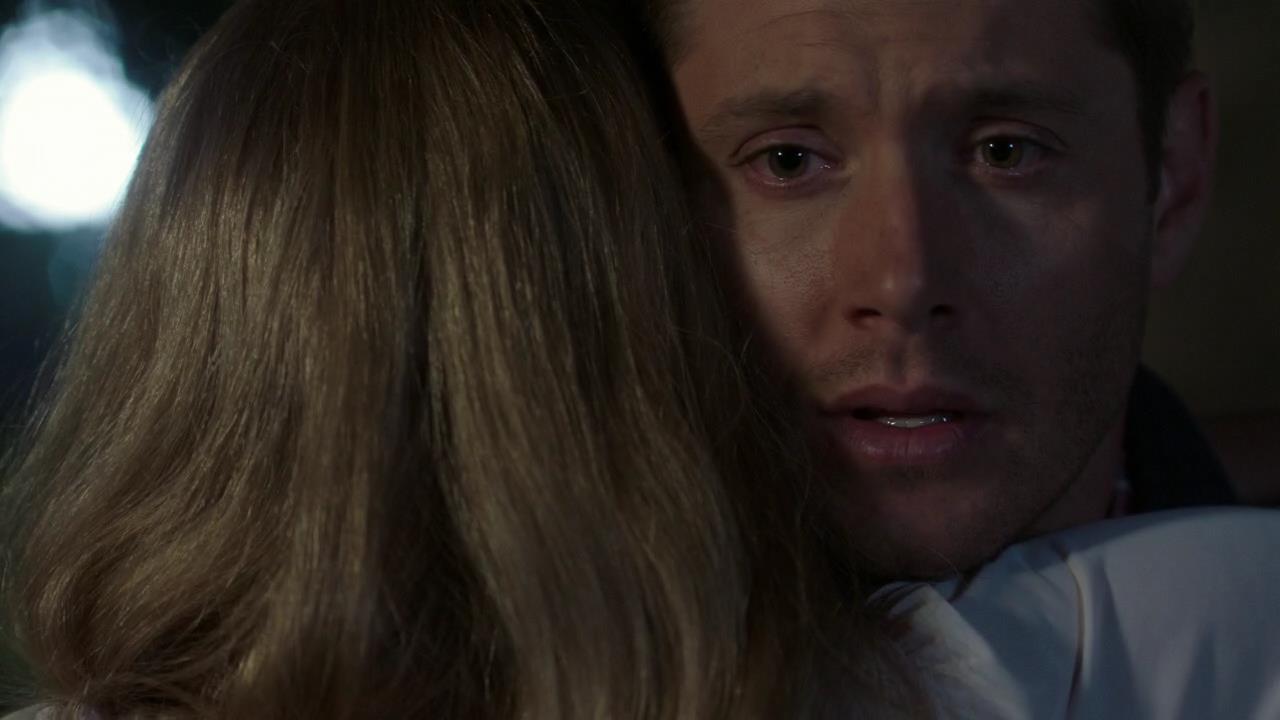
On the other side, Dean, too, struggles with this latest resurrection. Time travel and monster doppelgangers aside, the last time Dean saw his mother alive happened when he was four years old. His mother’s return has to be the last thing he ever expected. As hesitant as she is in his approach, he seems more so. After all, what if this is a mirage, a ploy, or another monster in disguise? He wants to know that she is real. Dean, however, also hopes that she is really back and that she has truly returned to the living. His hope shines bright in the way he proves his identity, rattling off the history he’s been told so many times by his father. He tells her, “Dad told me. March 23, 1972 you walked out of a movie theater, Slaughterhouse-Five, you loved it. And you bumped into a big marine and knocked him on his ass. You were embarrassed and he laughed it off, said you could make it up to him with a cup of coffee. So you went to, uh, Maroni’s, and you talked and he was cute, and he knew the words to every Zeppelin song, so when he asked you for your number you gave it to him even though you knew your dad would be pissed. That was the night that you met-”
“John Winchester,” Mary finishes.
Finally, she accepts his truth and embraces him. Dean says softly, his voice revealing the little boy trapped inside, “Hi, Mom.”
As the truth is revealed, however, Mary has to reorient herself to a new and harsh reality. She has been dead for thirty three years. The major changes that stun her emerge in technology—but that is merely surface. She has to adjust to the thought of cellphones, computers, and so much more. Mary need not question that she has indeed been brought back after such a long period. It is in the technology all around her.
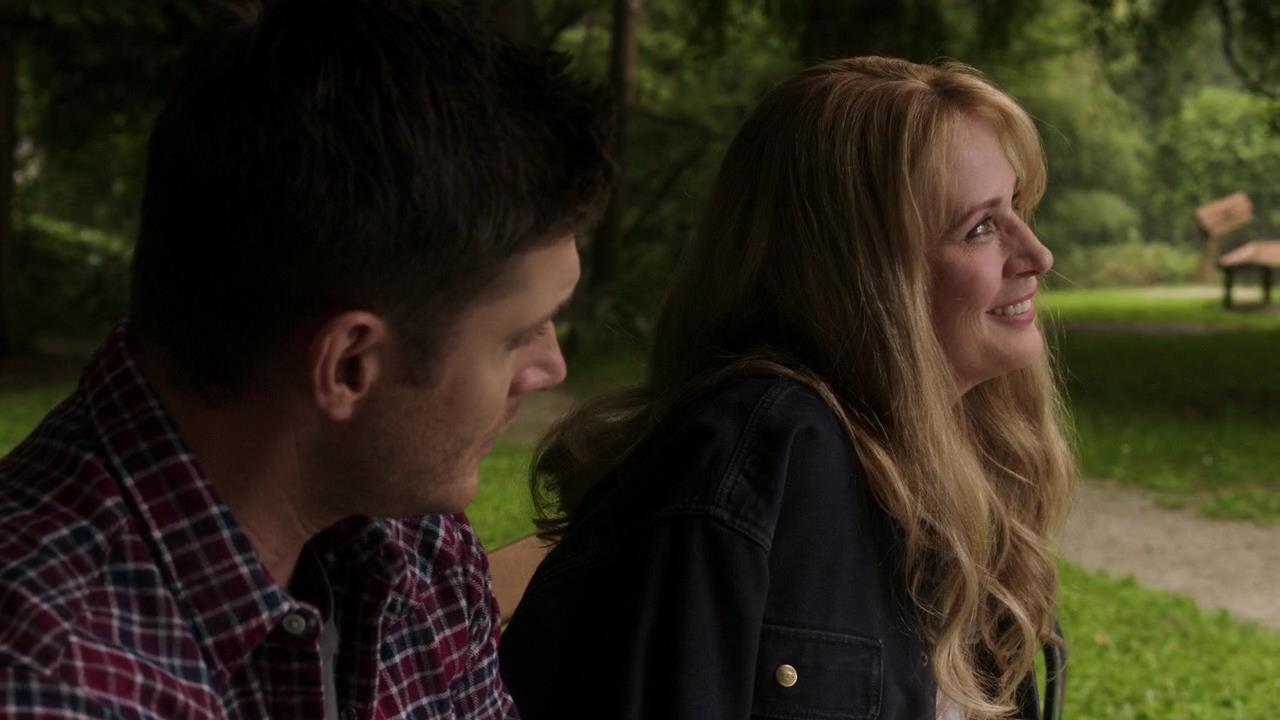
The loss of her husband hits hard, too. John’s loss happened many years ago for Dean—but is completely fresh to Mary. She asks, her heart breaking, how he died. When Dean confirms that he gave himself up for one of their sons, she whispers with pride and sorrow, “That sounds like John.” It takes her a moment to gather herself, to come to grips with what happened and what it means. She doesn’t know all the details—that the very demon that she made a deal with is the very same that killed him twenty years later—but she can guess that the death was supernatural in nature.
These earth shattering changes emerge in the adult son she sees before her. He is well trained, smart, and capable. Dean seems rather un-fazed by her sudden reappearance—on the surface—as if somehow resurrections are a regular occurrence. In many ways, that statement is true. This isn’t the first time he’s had a dead family member returned. Mary is also shown a grown son that is utterly devoted to family. Upon returning to the Bunker, they discover the blood trail Sam has left behind. Instantly, Dean turns into the hunter, canvassing his home, securing weapons for both of them, and assessing the situation at hand. With Castiel’s appearance, he quickly learns that Sam has been taken—and he is amazed that the culprit is neither demon or angel or monster.
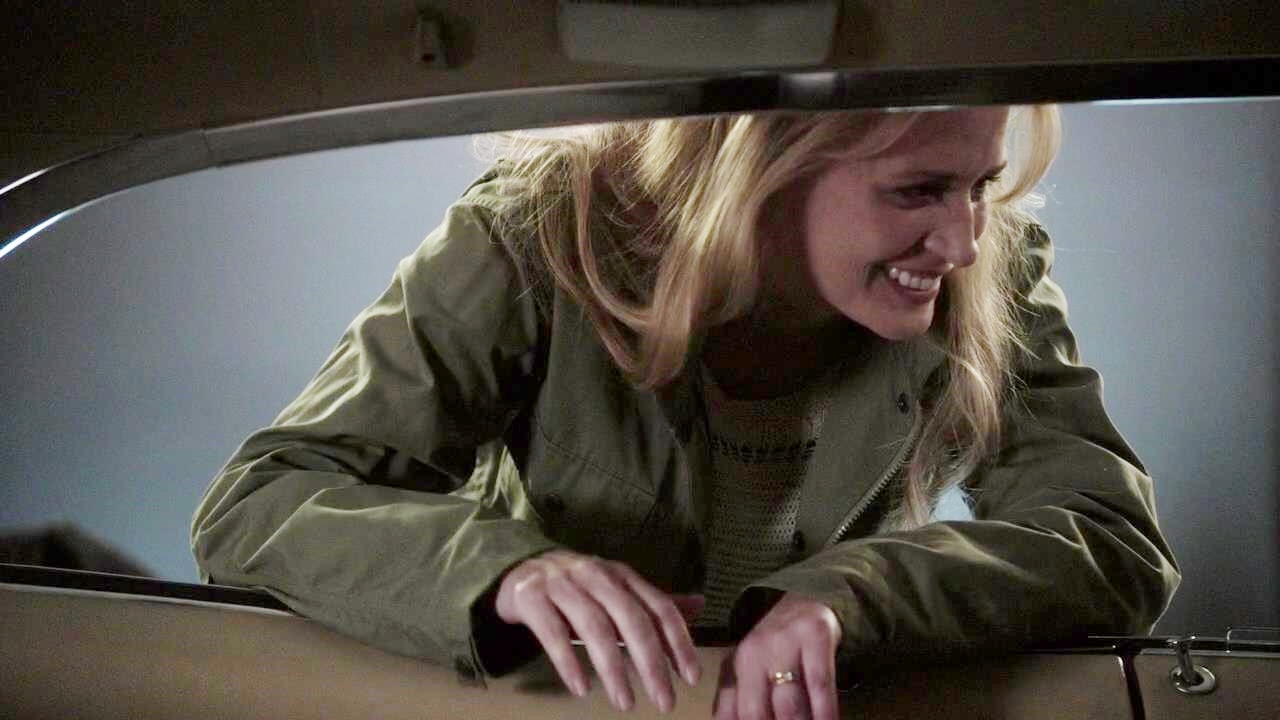
As they make their way to search for Sam based on the security camera feed, Mary is confronted by another shade of her past: the Impala. As much as things have changed, some things have truly stayed the same. This car—one that John had bought as a civilian before hunting consumed his life—connects her to her husband and gives her a foundation to stand upon. She lovingly runs a hand over her glossy paint. She greets, “Hey, sweetheart. Remember me?” She gazes fondly into the interior and remembers all the good times she had—much to Dean’s dismay. If she must navigate the world she’s been dumped into, there’s no other vehicle better than Baby to do so.
For Mary, in so many ways this new reality is her worst nightmare. Her sons were never supposed to be hunters. This was not the life she chose for them. She had left the hunting world behind for John and to start a family that would never need know the truth about what goes bump in the night. Instead, they’ve been raised in the life and continue the legacy her father and family line pursued for generations. Even so, the more they work together to find Sam, Mary easily finds her way back into the hunter’s world. She knows how to do this job. She knows how things work. As they track Sam’s kidnappers, she joins in on trying to find him—her own protective instincts strong. After all, the last time she saw Sam, he was a six month old baby—not the thirty-three year old man he is now. They track his kidnapper to a vet, learning that he was shot and operated on. When the vet tries to lie his way out of telling them more, she doesn’t blink and tells Castiel, “Hurt him.” The moment takes Dean aback momentarily, amazed at how his mother becomes ruthless so easily—and yet there’s pride there, too.
That pride must be reciprocated when Mary hears Dean tell her younger son’s kidnapper, “You think you can run from me? Try it. Cause when I find you, and I will find you. If he is not in one piece, I will take you apart. You understand me?” Like mother, like son, as they say.
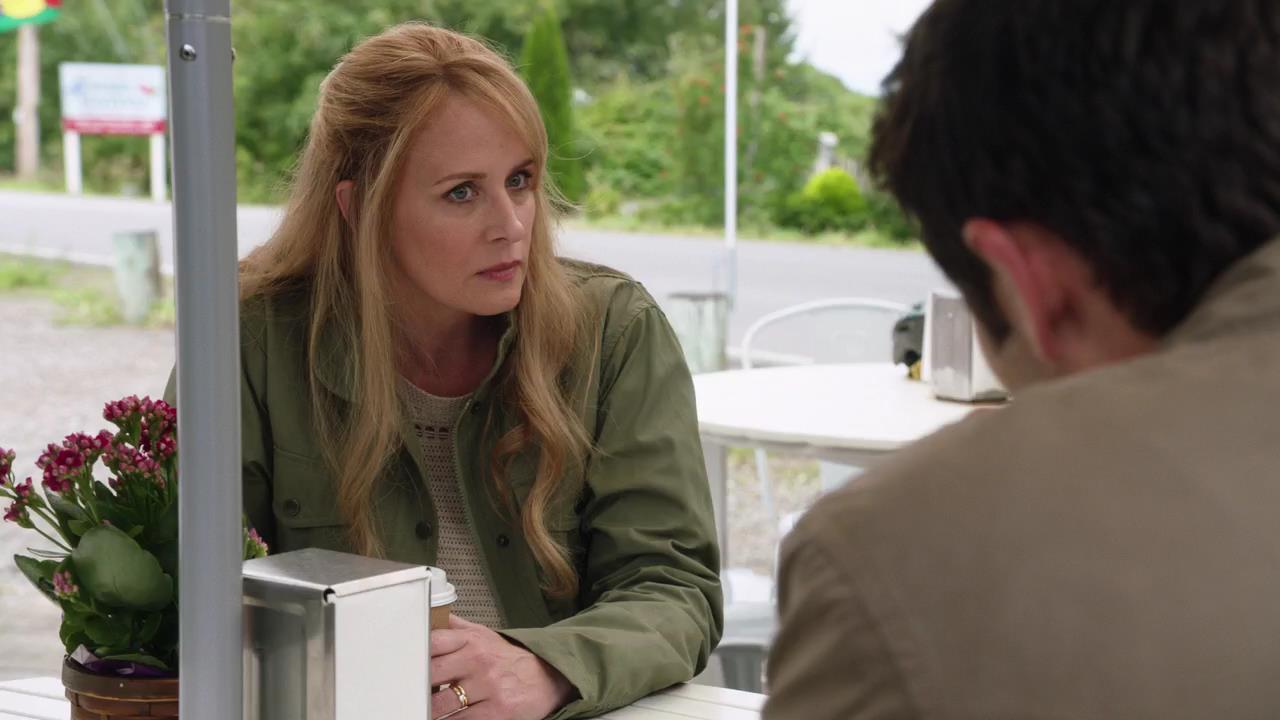
As easy as it was for Mary to pick the old habits of hunting again, there are other things that make what happened such a seismic shift for the matriarch of the Winchester family. Angels are real—and apparently work with her sons in the life. Castiel realizes she’s struggling and remarks that his first moments on earth were “jarring.”She tells him, “One word for it. I grew up with hunters, I’ve heard about people coming back to life before. But to actually do it, after thirty years. A lot’s changed. A lot.”
While they drive back to the Bunker to trace the phone number, they are struck by a car and confronted by one of Sam’s kidnappers. A fight ensues—a one-sided fight. Their opponent, powered up with a mysterious brass knuckles set, manages to beat both Dean and Castiel. Mary, incapacitated from the car crash, has no idea that they’re so close to being killed. Who ever these Men of Letters are, they certainly have honed more weaponry than expected and will stop at nothing short of eliminating “problems.”
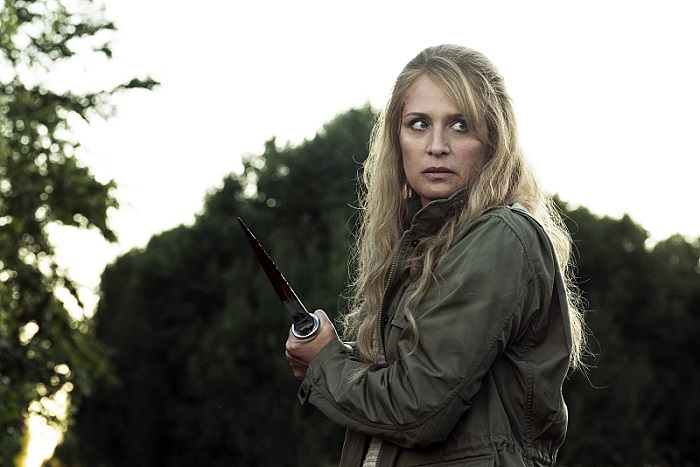
However, Mary is unknown to this seemingly militant branch of the Men of Letters. Her presence goes undetected or ignored. As she comes to, she realizes the situation has gotten largely out of hand and takes action of her own. As the woman attempts to shoot her son with his own gun, she stabs her with the angel blade Castiel dropped. Mary has come back from the dead to kill someone else—a human no less. She may have done it to save her son, but the action has scarred her, too. While Castiel and Dean hide the evidence of the murder—pushing the vehicle off the road and hiding it in brush—Mary has to calm herself. How else will she carry on?
It crashes over her that she’s woken from a long sleep—that she has been thrust back into the life she hates the most and that everything she had built has crumbled. She has taken a human life. She has lost her husband. She has missed her children growing up—as hunters or otherwise—and she has to find a way to deal. Dean realizes that his mother struggles with this and asks if she is okay. Instead of falling back on covering up her internal dilemma with a perfunctory Winchester-style, “I’m fine,” she states in utter honesty, “No. I’m not.”
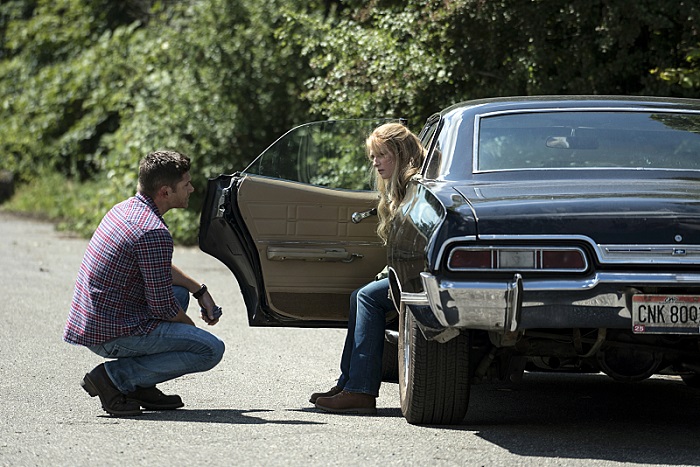
The entirety of the episode has built to this moment for Mary. This is a crossroads. She must chose to either “keep calm and carry on” or find a way to walk away. She has to come to terms with what has happened—to find her place in a world she does not recognize. She has to get to know her son—and save another. Mary must choose what happens next for her and learn all new rules. She has been thrust back into the world—but it is not nearly as cut and dried or as simple as it once seemed. Her childhood as a hunter never had angels or the Apocalypse or the Darkness. The Men of Letters themselves were an old myth.
As she sits in the backseat gathering herself, she tells Dean, “I spent my life running from this, from hunting. And I got out. I never wanted this for you and Sam.” It is in this moment, however, that Mary realizes that her past would always catch up to her—that while she may have never wanted this for her boys, the fact remains that this has become their life. To reject it now would be to reject her children—and while she may have planned on walking away from her father and the life, leaving Sam and Dean is much much harder to do now that she knows that they are alive and hunting.
Dean understands. He has dabbled in domesticated civilian life and he knows how alluring it can be. The safety it provides from the dark things out on the back-roads can seduce anyone away from hunting. And yet, he knows that his attempts—and Sam’s—have been utter failures and that the family business has always found a way to bring them back. Seeing his mother teeter on the edge of deciding to stay or go—to hunt or not—to “keep calm and carry on”—he kneels down and states, “Mom, I get it. I do. If I had kids, I wouldn’t want them in this. But, Sam and me. Saving people and hunting things, this is our life. I think we make the world a better place. I know that we do.”
That conviction in his voice and the hope in Dean’s eyes give her pause. They continue on their way—and yet in the dark of the night and the Impala’s backseat, Mary wrestles with this crossroads. She must decide what to do and how she will handle this second chance. Mary has to face a future without her husband but has her sons. She has to find her own resolve and reorient herself into this place and time. The question becomes then, how will she do this? How will she “keep calm and carry on?”
But Mary is not the only one to struggle with this question.
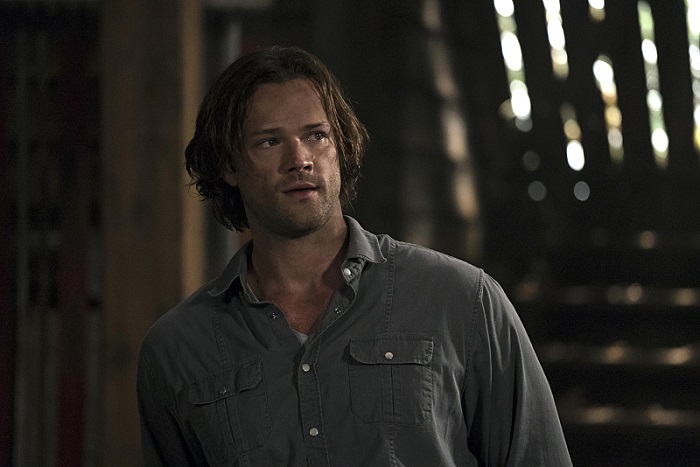
In the aftermath of “saving the sun,” Sam must confront a harsh reality of his own. He has endured the loss of his brother fresh once more. He has to find a way to “keep calm and carry on” through the sorrow, guilt, and pain it leaves in his heart. He had planned on regrouping at the Bunker, navigating his way to what happens next and how he moves forward. He may have planned on finding a way to bring Dean back or how to hunt on his own with Castiel. Sam needed time to lick his wounds—but with Lady Toni Bevell’s sudden appearance, that has to be put on hold.
She has shot him in the knee and abducted him. This British Men of Letters has no intention of playing nice with Sam to get what she wants. After a short visit to a vet to remove the bullet—declaring quite coldly, “Animals. People. They’re all meat,” it is clear that Sam has entered yet another fight for his life. She may not be a monster, demon, or angel, but she certainly has found a way to subdue him for the time being. Next, she has chained him to a chair with heavy handcuffs. Sam can’t simply pick the lock or break the ropes.
To escape this, it will take patience.
In the meantime, Lady Toni will extract the information she came for—by any means necessary. She tells Sam, “I don’t want to hurt you, Sam. You gave me no choice. And well, I could say it wasn’t supposed to go this way, but you’re you. It was always going to go this way.”
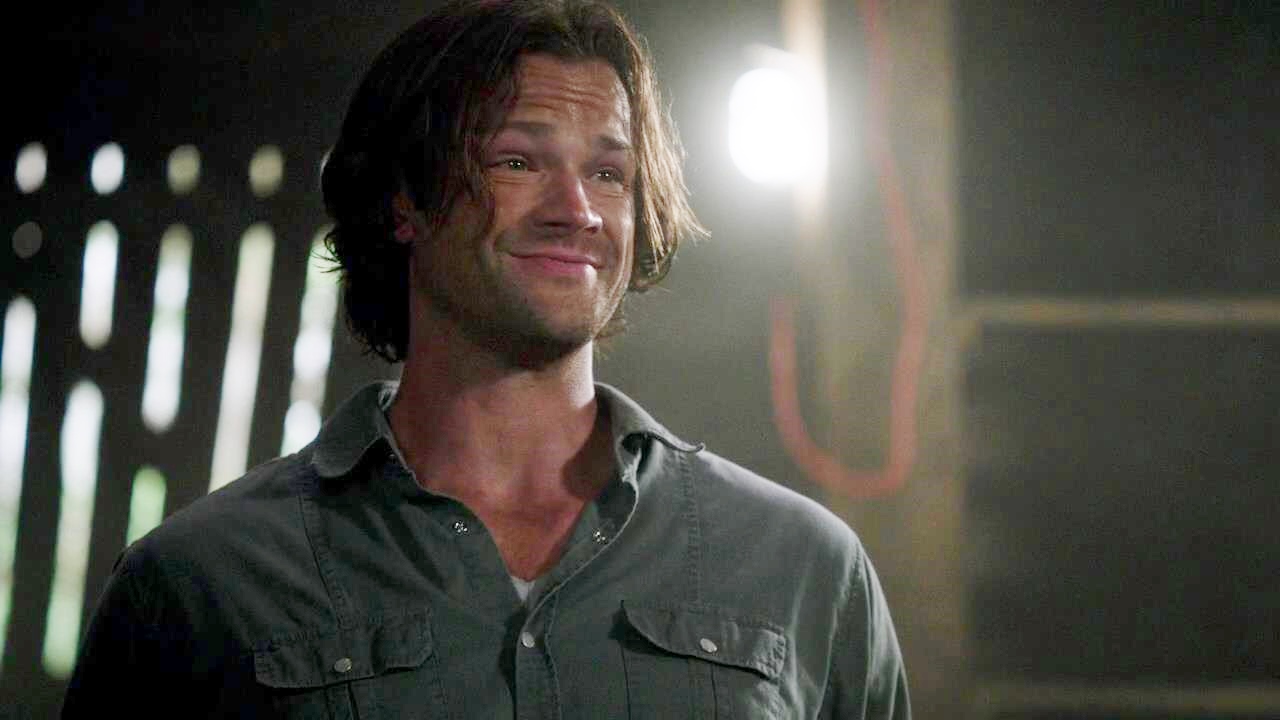
Judging by Sam’s fiery responses, he has enough patience in spades. He tells her, “You can ask me any type of question you want, but the answer is gonna be the exact same. Screw you. You wanna get mad, you wanna get mean? I’ve been tortured by the Devil himself. You. You’re just an accent in a pantsuit. What can you do to me?”
Sam may have said this to his captor in Lady Toni, but he has really said this to himself. To “keep calm and carry on,” Sam must face head on his own past and his own experience with the Cage. This torture will be insignificant in comparison—and yet Sam must keep his head about himself and not give into any of it if he has any hope of survival and escape. After all, he’s proven that he wants to live and get out of this.
The first torture makes Sam scoff, however. He taunts, “A cold shower? That’s your play?”
Water torture will take far too long and will not get Lady Toni what she seeks. He will simply sit under the frigid stream of water and calmly state, “Screw you,” over and over again. It may inconvenience the younger Winchester, but it will not break him. Lady Toni needs names. She needs locations. She needs to know the hierarchy of the American hunting communities. Her mission is to gather information—to “make America safe,” from the supernatural world. To her, Sam is a lost cause. She tells him coldly, “You drive back roads, catching cases at random. You get word of bodies dropped, you check it out and maybe you kill the thing that did it. But that person is still dead, and maybe a few more. But my people. We plan ahead. We study lore, and we use it against our enemies. Back home every thoroughfare, every bridge, every dock, every airport has been warded. The moment a monster steps foot in Britain, we know about it. Within twenty minutes he’s been picked up, and within forty, he’s dead. There hasn’t been a monster-related death in Britain since 1965 because we are good at our job. Now, you were always a lost cause, Sam, but I’m hoping there are other hunters we can work with, teach.”
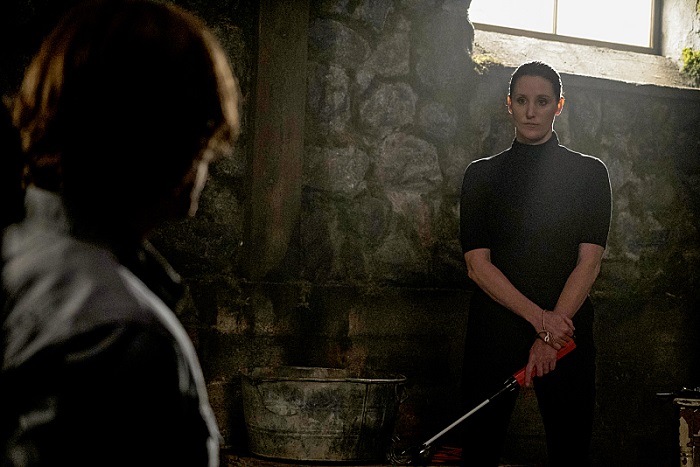
With this statement, Lady Toni has laid out her ultimate view of him. She does not see Sam as a hero—nor does she see him as “being bad at your job.” Her treatment from the moment they met to now paints a grim picture. She sees him as a monster—and this insult strikes close to home for Sam. He has already pictured himself as thus. To be labeled a monster or a freak has always struck a nerve in Sam. Lady Toni has rubbed fresh salt in this oldest of wounds—and has lit a fire within Sam at the same time. She thinks of him as no different than the creatures they gather up and kill within forty minutes of their arrival. Sam is not a human being to her. He sees through her promise that he’ll walk free if he complies and knows that his fate will be exactly the same as theirs. Why, then, should he help her? Perhaps before shooting him and torturing him he may have been willing to talk—but any chance for that has long since died.
And so, Sam, furious and stubborn, refuses to help her—he will not give her what she wants. She has her accomplice take out a blow torch, aiming it straight at his bare feet. If they can’t freeze him into submission, perhaps they can burn him. He pleads for them not to do this, but it will not make him break. Ms. Watt stands stunned by Sam’s tenacity and resolve. She tells Lady Toni, “No one can take that much pain and not break. No one.”
Lady Toni realizes that physical pain, then, may be a dead end. She prepares a syringe and injects a serum, pledging to “break his mind.”
Much like the physical torments, though, Sam has endured far worse mental torture from Lucifer—and his own psyche. This may dredge up his own guilt, self-hatred and worse, but it may not yield the results she wants, either. Instead, the serum will act as Sam’s crossroads. Much like his mother, Sam has to choose his path—he has to find a way to “keep calm and carry on” despite believing that he’s lost everything again. His brother is dead. He has no idea where Castiel’s been sent or if he’ll ever find him. There’s no one to rescue him—so he’ll have to find a way out of this himself or give up and die.
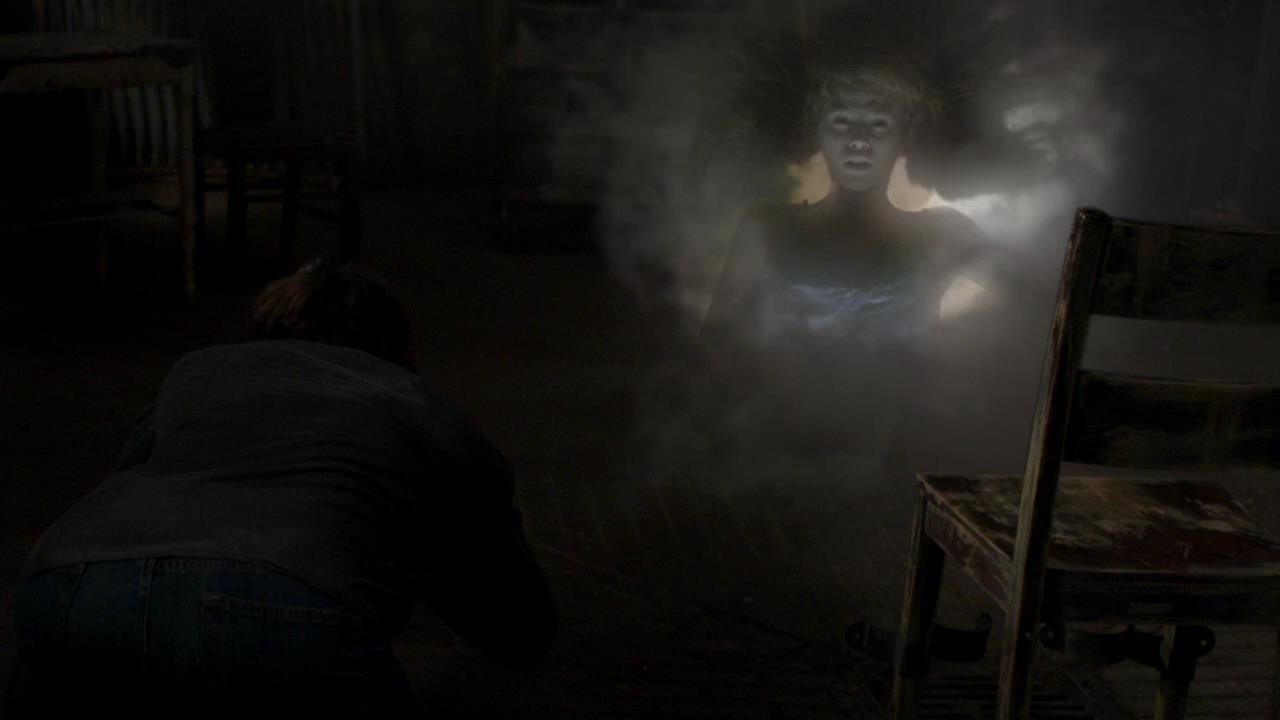
As he wakes to find himself unfettered, Sam’s first reaction is to find a way out. He stalks the room, looking for weaknesses, assesses that he’s being watched by a camera, and tries to open the cellar doors that have also been chained shut. It isn’t until he hears the shrill noise in his head that his focus shifts. He cannot focus on a physical escape until he’s thwarted this mental torture.
Lady Toni watches Sam’s struggle on a close circuit television—wondering at the dark torments conjured before Sam’s eyes. He sees the brutal deaths of Kevin and Sarah and Jessica. He hears his brother’s angry voice shout, “I’m dead because of you. This is your fault. This is all your fault. We’re all dead because of you, Sam.” The litany increases in volume and relentlessness. It drives Sam to that very moment where he must choose. He has endured so much and has found himself in a familiar dark place.
Lucifer tortured hi soul relentlessly for over a century. His memories from the Cage nearly destroyed him after the Wall in his mind had crumbled. He hallucinated Lucifer for months—the torture endless. Even so, Sam faced his greatest adversary once more in a head to head—and won. He must find that same resolve here as he hears the worst of his guilt and anguish thrown in his face. When he told Lady Toni that he had been tortured by the Devil himself, Sam stated it to remind himself of his own tenacity and strength. He cannot allow a serum designed to turn his own mind against himself to win here any more than he could allow the remnants of his time in the Cage win.
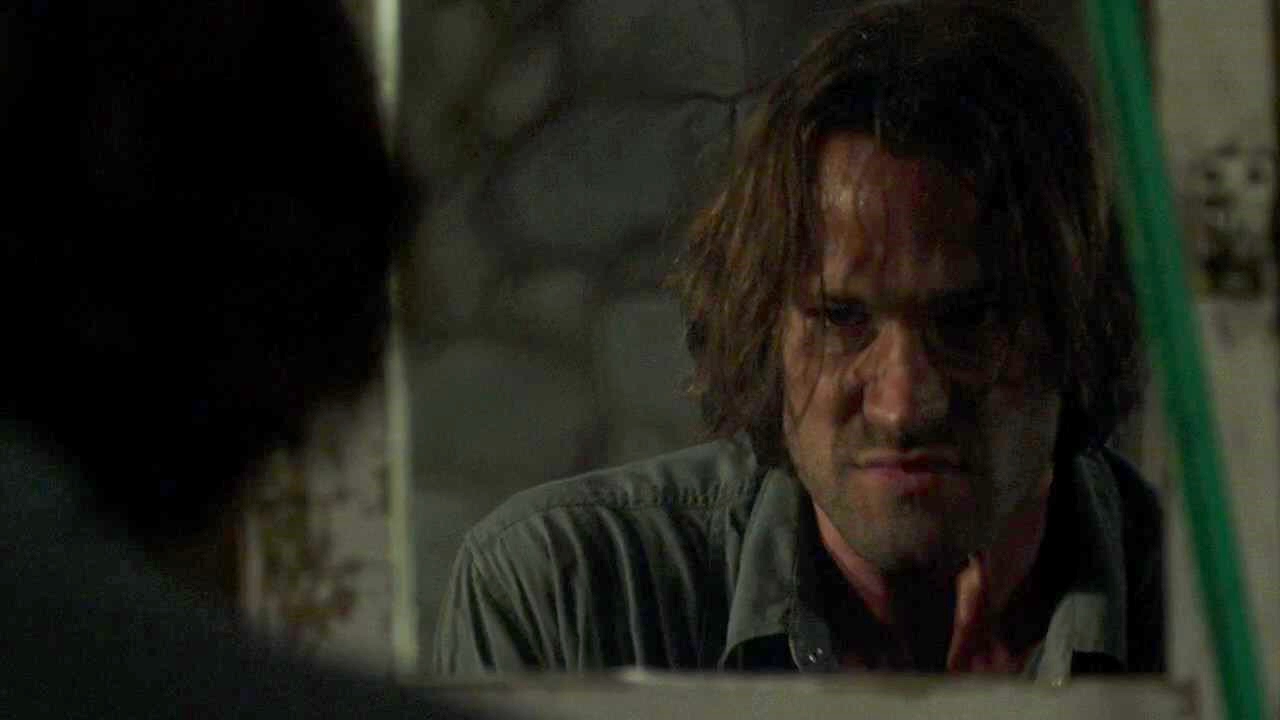
However, it would be easy to give in here and now and just do as his brother’s voice demands. He believes that all of this has been his fault. If he dies now—if he follows through there’s no coming back ever. He’ll be tossed into the Empty and forgotten. Sam won’t ever hurt anyone again. The pain he feels right now would abate and he’d be freed. The longer he hears this voice, it becomes all the more tempting. Staring at his own reflection in a mirror, it reminds him of the way he once stared out of a mirror and into his own face while Lucifer possessed him. It makes everything so clear. It’d be so simple and easy. He’d never have to hear Dean’s voice that angry again. He’d never have to hear his brother snarl, “Why won’t you just die?” He’d never have to endure the guilt.
And so, Sam breaks the mirror, using its glass as a weapon.
Driven to that edge, he places a long jagged piece at his throat and makes the deep cut required.
Lady Toni, watching from safety, realizes she has miscalculated. She wants him alive and broken to tell her what she needs to know—she didn’t consider that Sam would kill himself in the equation. No matter what her final intentions were for him, this does not help her case. Either she will have to explain herself to her superiors or she will face the wrath of Dean Winchester. Lady Toni rushes in and tries to assess the situation—only to realize that she’s wrong again.
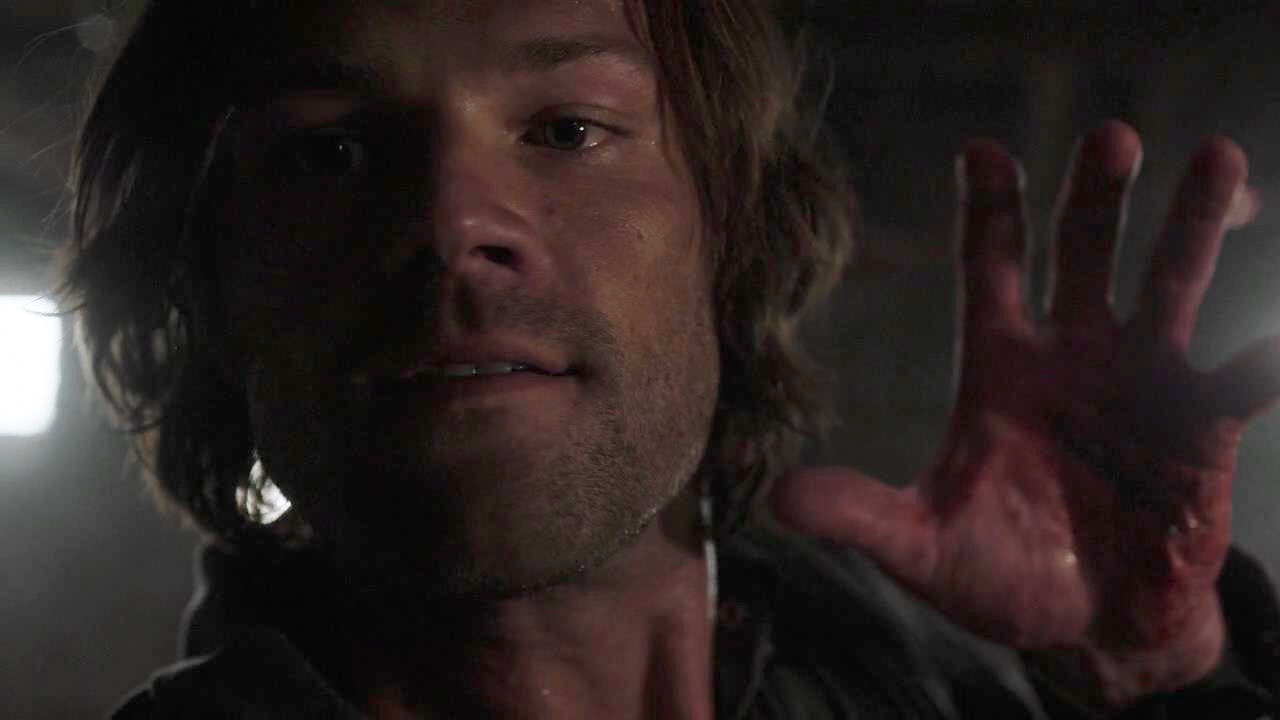
Sam hasn’t actually cut his own throat. He’s simulated the act to trick her into coming in so he could make an escape attempt. Just as she moves to turn him over, he springs into action, grabbing her by the throat and showing her his palm, angrily slashed open. He snarls, “Maybe you’re not as good at your job as you think.”
Even more, he has cemented his choice. The slash on his palm isn’t just Sam making a point—that Lady Toni isn’t as clever as she believes—instead, it is a reminder to Sam. To slash his palm the way he has, to show it to her, is to remind him that this pain he feels anchors him to Dean—dead or alive—and to that stone number one that his brother will always be. He slashed his palm to revive the scar from when he had been haunted by Lucifer—taunted into nearly committing suicide as he nearly did now. It is a rejection of the cruel taunts of his guilt wearing his brother’s voice to favor the love he has for Dean. By slashing his palm, Sam frees himself from her latest torture and anchors himself to reality. He proves that he is indeed stronger than anything she can do to him. More importantly, he frees himself from some of his own pain and guilt and self-hatred in that single action.
The fight is on. Sam has chosen clearly to “keep calm and carry on” and he has chosen to get out of this situation on his own. He doesn’t want to kill her, however, knowing that she is a human and that it would make him no better than the monsters he hunts. To kill her now would make Lady Toni’s assessment of him right. He chokes her enough to make her collapse on the floor and hobbles his way over to the staircase. His wounds slow him too much and as she recovers, she uses the cattle prod to bring him down once more, charging past him to lock him into this awful space.
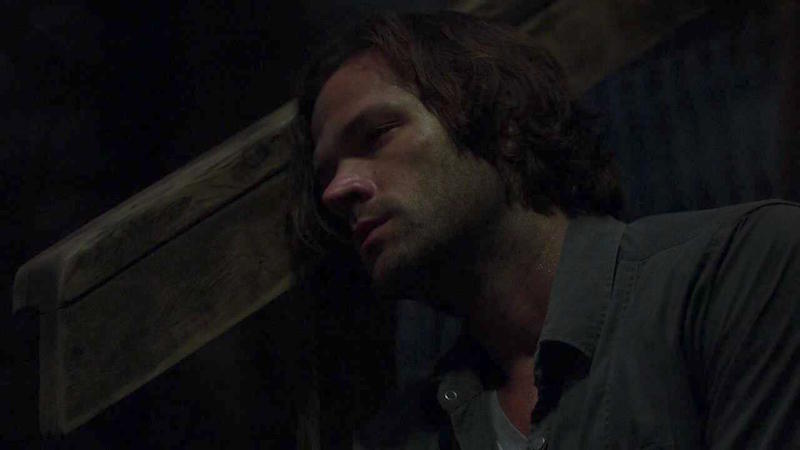
Sam sits on the bottom stairs, looking despondent and alone. He took a gamble and lost—but even so he has made his decision. He has endured the loss of Dean once more, the knowledge that he must handle this situation alone, and the guilt he carries for it, right or wrong. He knows that running away will not fix things. Hiding somewhere won’t change matters. Killing himself and disappearing into the Empty will not make the world better, either. He has to find a way out of this situation by his own wits.
Sam has chosen to fight because the alternative means that more in the American hunting community—human and monster alike—will end up just as he has at the hands of these foreign Men of Letters. He can’t let that happen. He will “keep calm and carry on” the family business of “saving people, hunting things” because that is who and what he is.
Sam will do it because he knows that they do make the world a better place—and in the end, that is what matters.


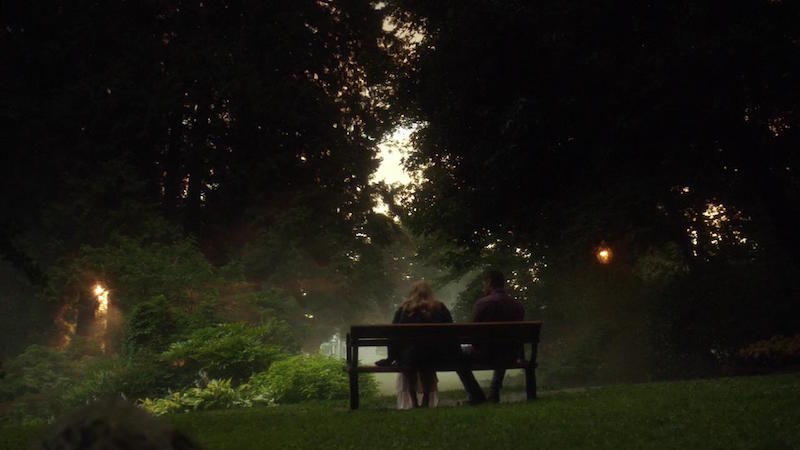
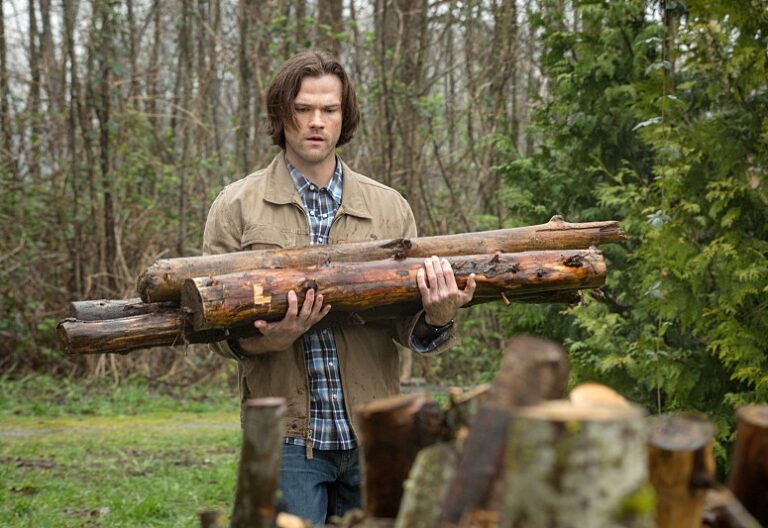
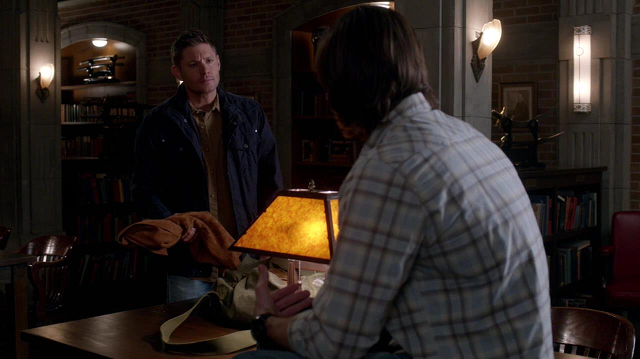
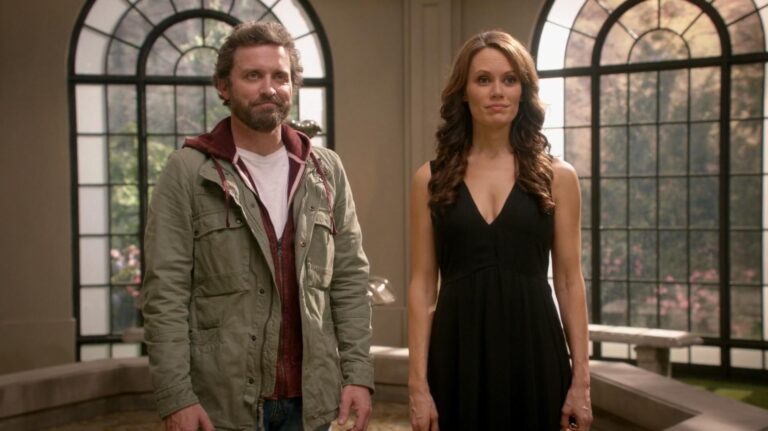
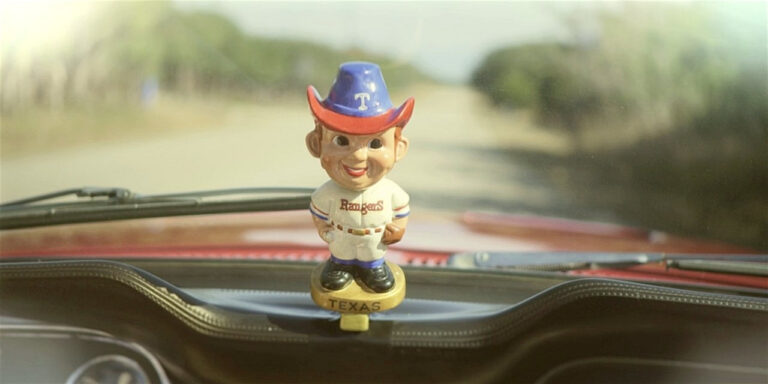
Leave a Reply